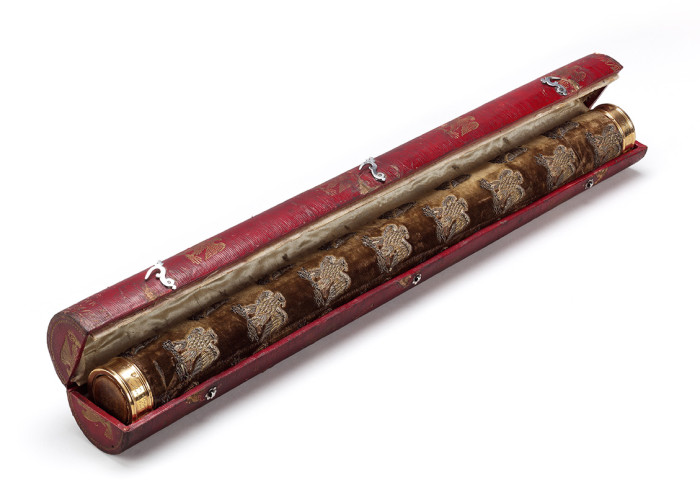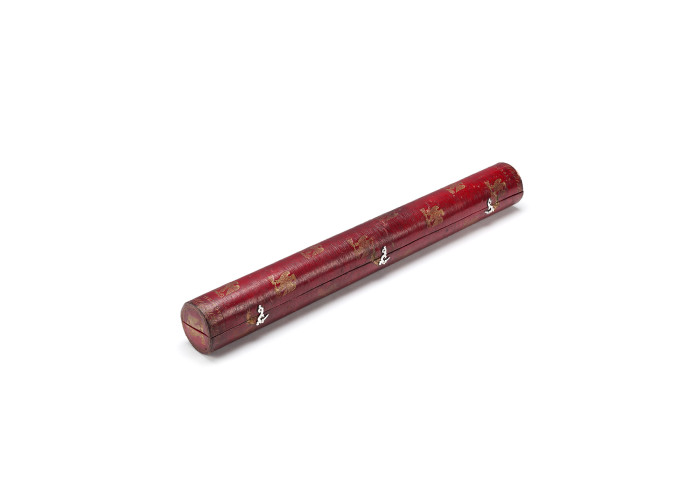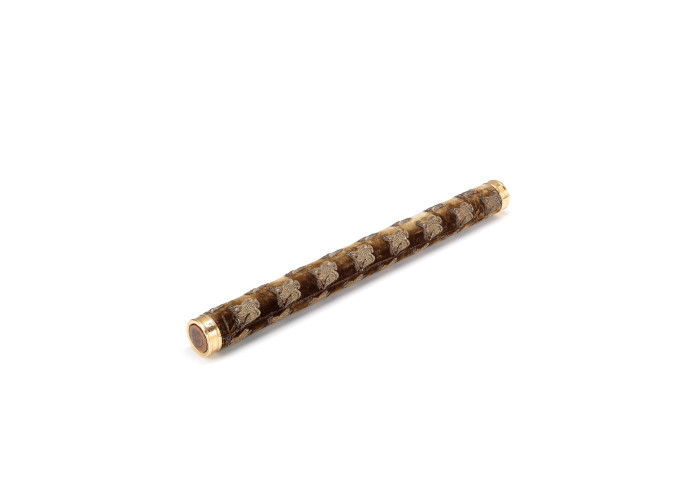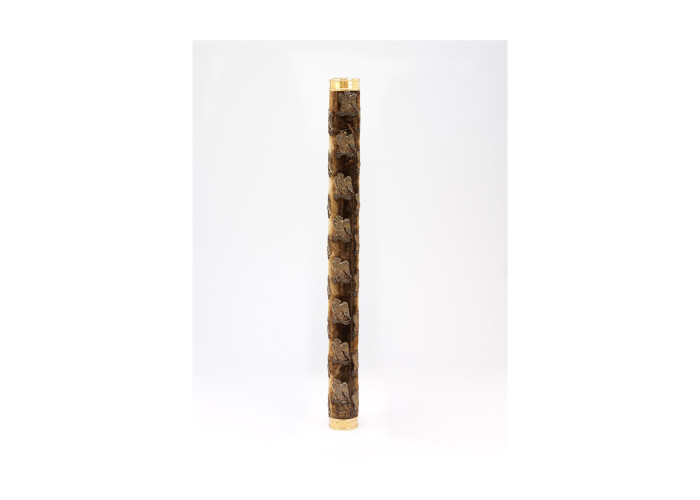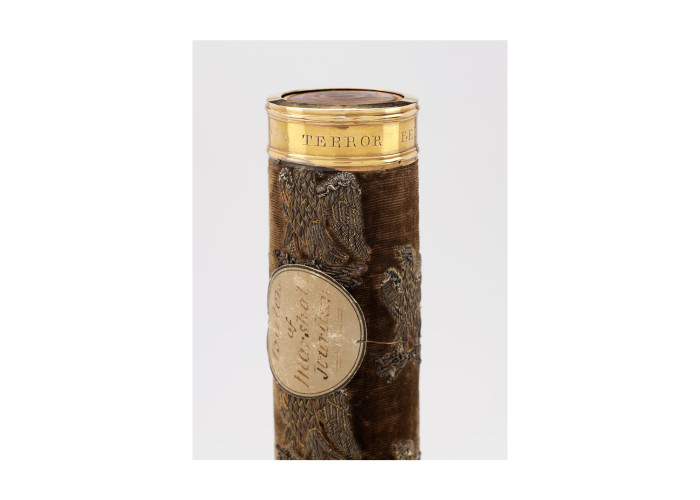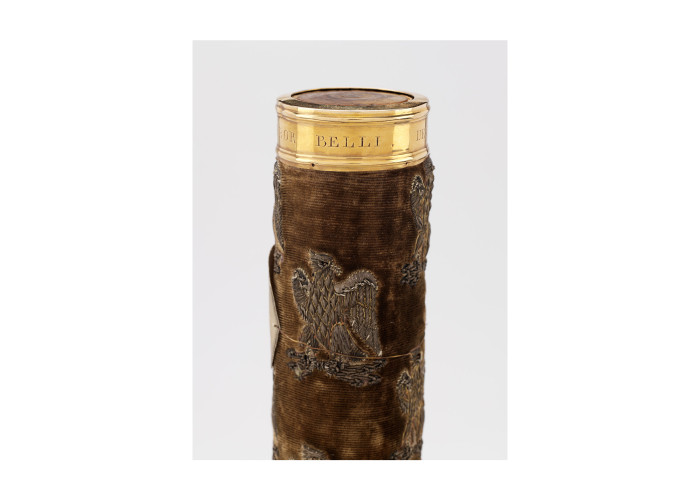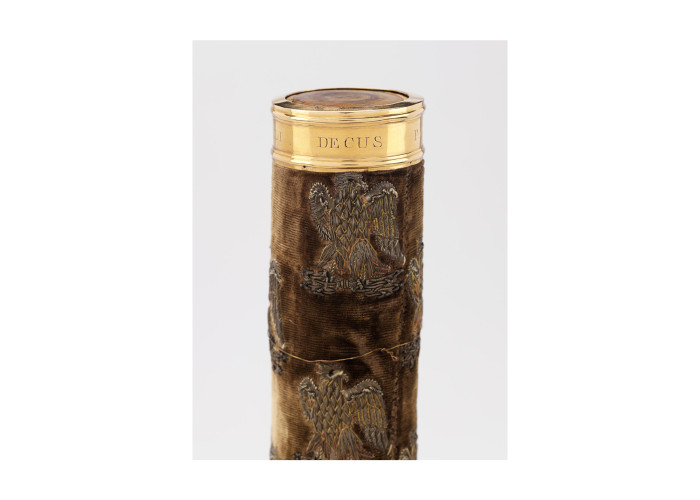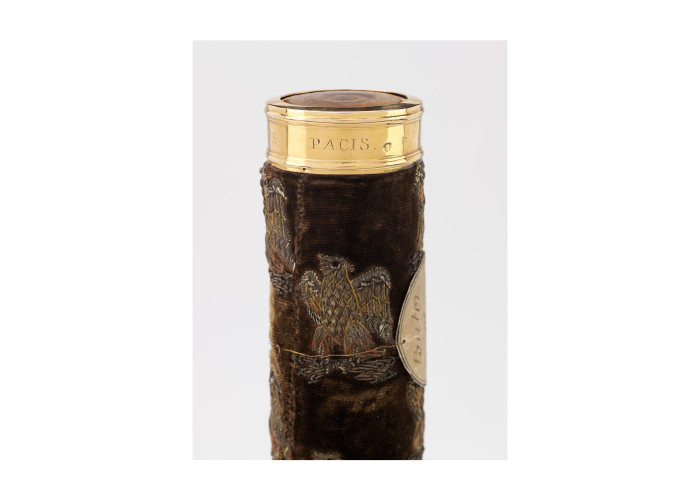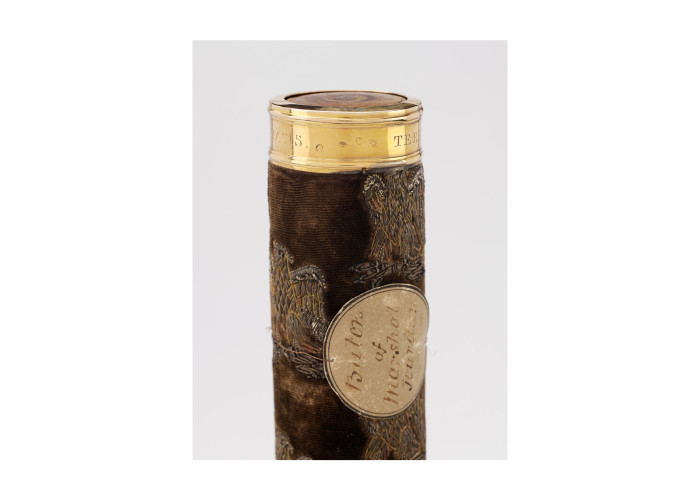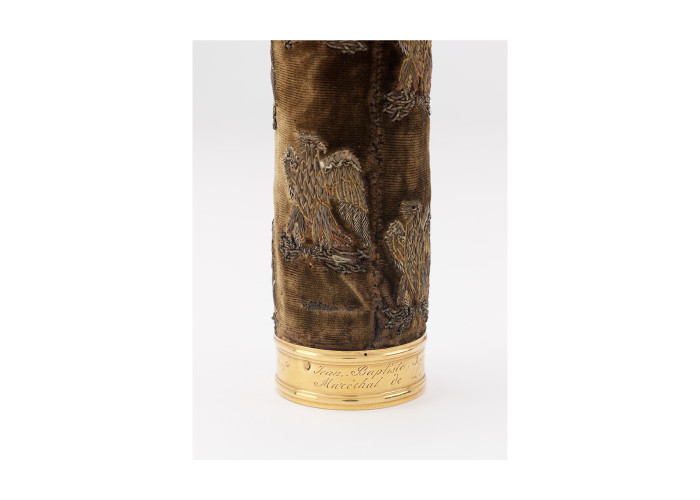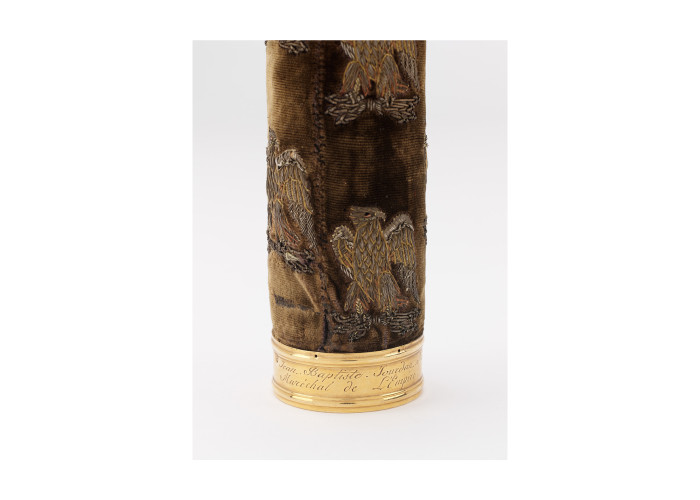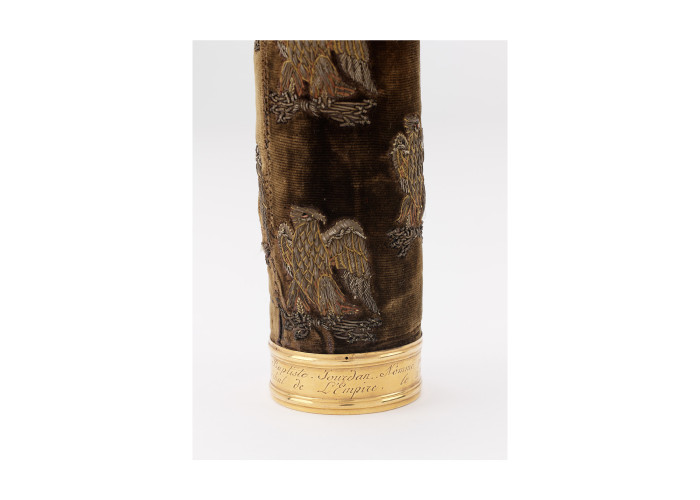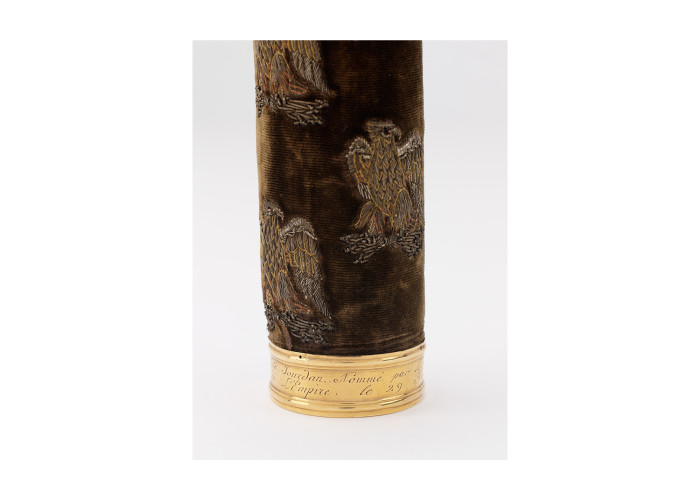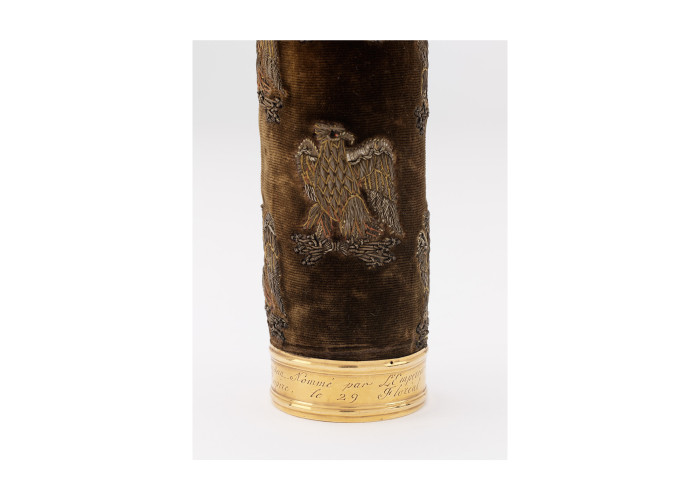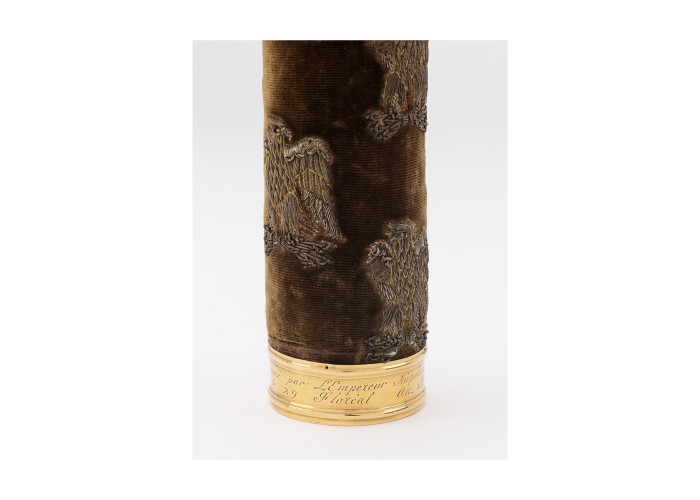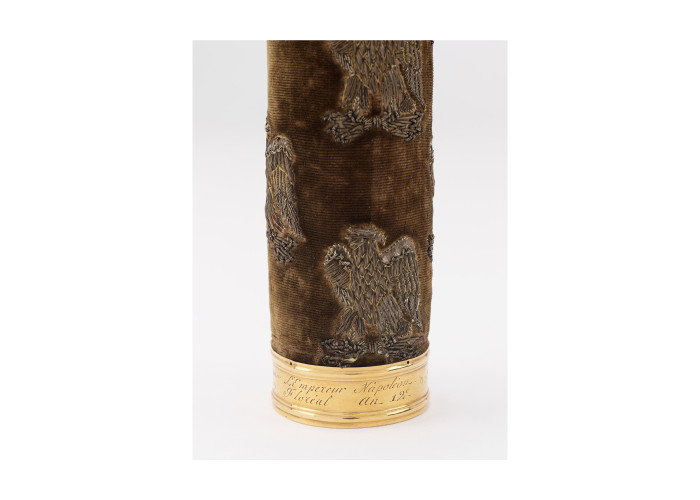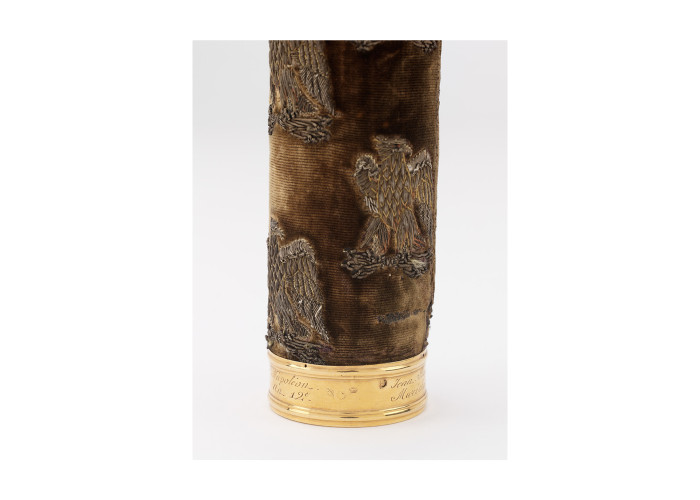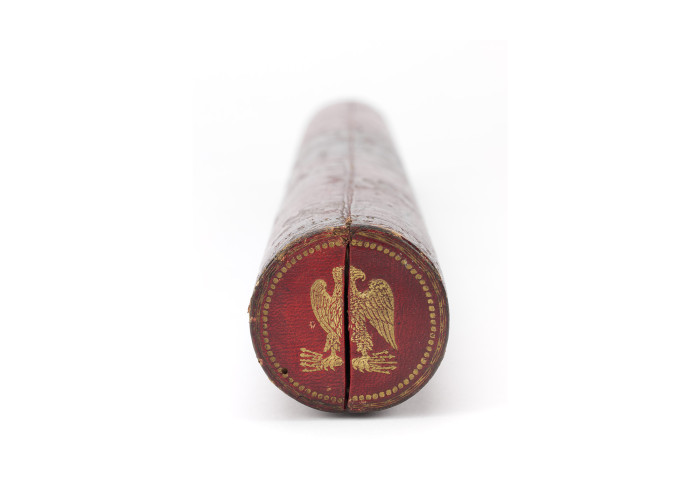Marshal Jourdan’s Baton
This baton, a personal gift of Napoleon, was owned by the French Marshal Jean Baptiste Jourdan, one of the Generals who the Duke of Wellington defeated during his long war against the French in the Spanish Peninsula. At the Battle of Vitoria on 21 June 1813 a combined British, Portuguese and Spanish army defeated the French Army occupying Spain.
Marshal Jourdan’s baton was amongst the spoils captured when Wellington defeated a French army under Joseph Bonaparte (the Emperor Napoleon’s brother) and Marshal Jourdan at the Battle of Vitoria on 21st June 1813.
The baton was originally taken by the 87th (The Prince of Wales’s Own Irish) Regiment of Foot, who were famous for being the first British regiment to capture a French Imperial Eagle during the Peninsular War at the Battle of Barrosa in 1811.
In France the baton is the symbol of authority and distinction of a Maréchal de France. This is not a military rank but was granted to generals for exceptional achievement. The baton is a cylinder decorated with eagles, symbols of power and authority, and engraved with the Latin inscription: Terror belli, decus pacis. (Terror in war, decoration in peace).
After the battle Wellington sent the baton to the Prince Regent. He was delighted and wrote back:
“You have sent me among the trophies of unrivalled fame, the staff of a French marshal and I send you in return that of England. The British army will hail it with enthusiasm, while the whole universe will acknowledge those various efforts which have so imperiously called for it”
Jean-Baptiste Jourdan (1762-1833) enlisted as a private in the French royal army in 1778 and rose to become one of the most successful commanders of the French Revolutionary Army. He was created a Marshal of France by Napoleon in 1804, and eventually became Joseph Bonaparte’s Chief of Staff in Spain. After the decisive French defeat at Vitoria Jourdan held no important command up to the fall of the Empire in 1814.
Although he rejoined Napoleon during the Hundred Days and commanded a minor army, he submitted to the restored Bourbon monarchy again after the Battle of Waterloo. Greatly to his credit, Jourdan refused to be a member of the court which sentenced Marshal Ney to death.
-
Curatorial info
- Originating Museum: Royal Collection Trust
- Accession Number: 61176
- Production Date: 1804
- Creator: French
- Material: Baton: wood, velvet, gold, gold thread; case: morocco leather, brass
- Creation Place: France
- Size: 47.7 cm x 4.2 cm
-
Use this image
You can download and use the high resolution image under a Creative Commons licence, for all non-commercial purposes, provided you attribute the copyright holder.
- Rights Holder: Royal Collection Trust/© Her Majesty Queen Elizabeth II
- License Type: Creative Commons
Find it here
This object is in the collection of Windsor Castle


